-
Eng Mohammed Siddique wrote a new post 8 years, 6 months ago
-
Eng Mohammed Siddique wrote a new post 8 years, 6 months ago
Rohingya Language Rules
Rohingyalish is the modern writing system for the true spoken language of Rohingyas, the indigenous but oppressed Muslim minority people of Arakan State in the north-western part of Burma […] -
Eng Mohammed Siddique wrote a new post 8 years, 6 months ago
Nosíyot (Advice)
Allahr loi, honó kiyóre, córik no goijjó.
Duwat mazé Allahr tún baade kiyóttu no maiggo.
Maabaf or hotá mainno, hotá nomani no táikko.
Woktó mózin numáz foijjó, numáz no forí […] -
Eng Mohammed Siddique wrote a new post 8 years, 6 months ago
Allah tala tamám foran ola
jiníc óre zinda raikké dé faní loi.
Faní Allahr be mesál azim or cán niyamot.
Faní no tákile tamám zinda jiníc mori zaibou gói.
Faní ré héfazot goróon nán hárr insán ór uore […]
-
Eng Mohammed Siddique wrote a new post 8 years, 6 months ago
Allah tala ye, insán ólla hájur gas, nuksan sára, bicí fáaidar gas banaiyé. Allah tala hájur gas ór ek ek jiníc ót, fáaida raikké, honó kessú féla noza. Allah taala hájur becí barík óla banaiyé. Hájur gas […]
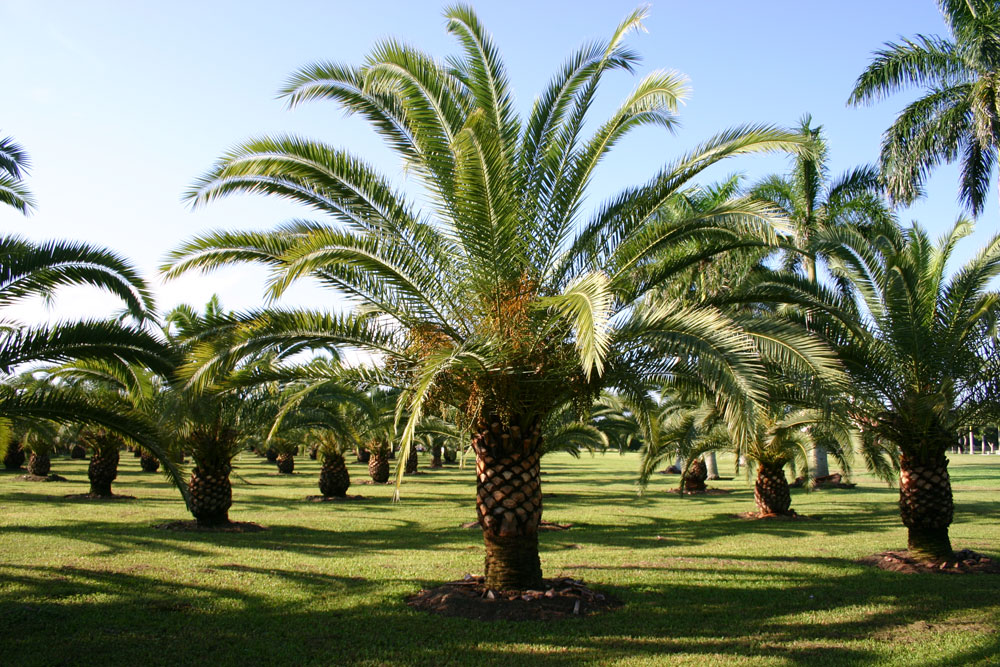
-
Eng Mohammed Siddique wrote a new post 8 years, 6 months ago
The Modern form of Arakan is Derived from Arabic
By Aman Ullah
“The modern form of Arakan said to be derived from the Arabic ‘Al-Rakhang’” …Professor Hodivala
“Arekadesa could also be read Anekadesa” […]
-
Eng Mohammed Siddique wrote a new post 8 years, 6 months ago
Rohingya Lesson STEP BY STEP
(A)# LESSON 1 (About Alphabet letters)
(1). Alphabet – Capital letter (28 letters)A B C Ç D E F – (C is read as Sh) & (Ç is read as tongue rolling R)
G H […] -
Eng Mohammed Siddique wrote a new post 8 years, 7 months ago
Rohingya Alphabet & Pronunciation
Alphabet
Aa Bb Cc Çç Dd Ee FfGg Hh Ii Jj Kk Ll Mm
Nn Ññ Oo Pp Qq Rr Ss
Tt Uu Vv Ww Xx Yy Zz
Consonants
“c” is pr […] -
Eng Mohammed Siddique wrote a new post 8 years, 7 months ago
Arakan hóde yían ekkán alok azad dec aiccíl “Arakan or Azad Mullúk – (Independent Kingdom of Arakan)” bóuli hoitóu zeçé Ruáinga ókkol tákitou. Bormá ye larái gorí Arakan oré loifélaiye de. Aijja añárare añá […]
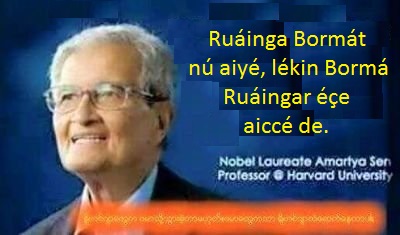
-
Eng Mohammed Siddique wrote a new post 8 years, 7 months ago
-
Eng Mohammed Siddique wrote a new post 8 years, 7 months ago
Seróf ek dhoilla [a] hórkot óla
[Only having same [a] vowel]
(1) Seróf [a] hórkot lói bone dé lofzó ókkol:
Dui (2) hórof óla:
(A) aá; áf; áh; ak; ák; al; ál; an, án; ar, ár; át; fa; lá; ná; wá, yá; za; […] -
Eng Mohammed Siddique wrote a new post 8 years, 7 months ago
We are only Rohingya
and
Rohingya
and
Rohingya
and
nothing Else.Añára seróf Rohingya
arde
Rohingya
arde
Rohingya,
ar
Bilkúl
kessú noó.Lékin añárar nam óre boóut dhoilla gorí leké z […]
-
Eng Mohammed Siddique wrote a new post 8 years, 7 months ago
Rohingyas are de jure citizens of Burma
By Aman Ullah
“Everyone has the right to a nationality,” and “no one shall be arbitrarily deprived of his nationality.” Universal Declaration of Human Rights
In January […] -
Eng Mohammed Siddique wrote a new post 8 years, 7 months ago
Dholoin (Rice milling device)
Dholoin hóde íba endila uggwá hol yá jiníc zibár bútore dán ókkol dháli dilé, ar ek dhák ottu, soil boni zagói. Dholoin ot dui paáth asé, ekkán uoror paáth arekkán nisor pa […]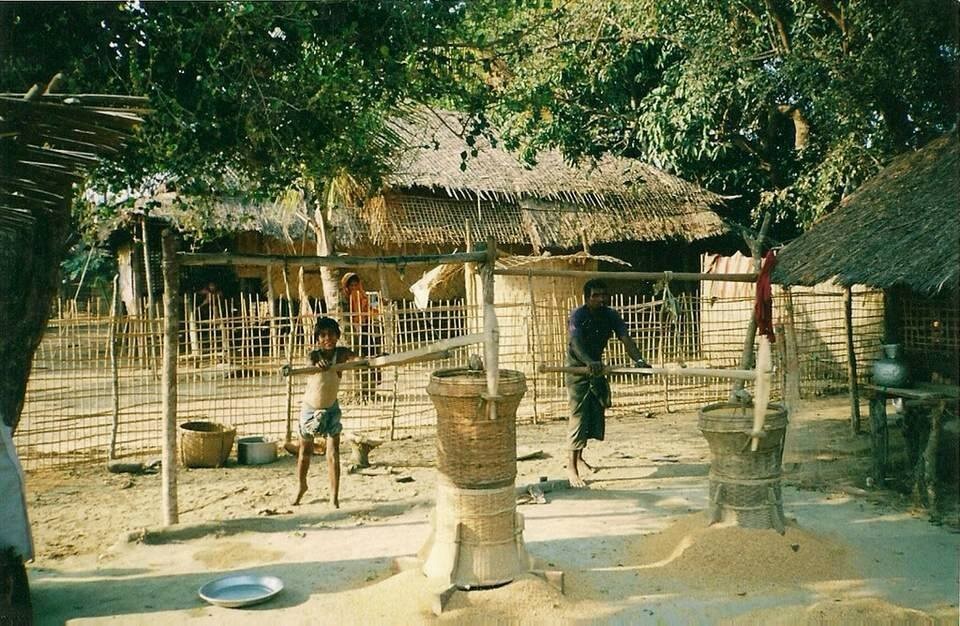
-
Eng Mohammed Siddique wrote a new post 8 years, 7 months ago
// Mouseover/ Click sound effect- by JavaScript Kit (www.javascriptkit.com)
var html5_audiotypes={
“mp3”: “audio/mpeg”,
“mp4”: “audio/mp4”,
“ogg”: “audio/ogg”,
“wav”: “audio/wav”,
“m4a”: […] -
Eng Mohammed Siddique wrote a new post 8 years, 7 months ago
Hárr Insán ór Fíkir
(Concerns of All Human)Hárr insán óttu yián fikír de,
Añár moroon or baade,
Añár fuain dór háalot ki óibou.Lékin, honíkkáttu yián fikír nái de,
Añár moroon or baade,
Añár ki háalot óibou.

-
Eng Mohammed Siddique wrote a new post 8 years, 8 months ago
Ruáinga hóde úun Bormár asól bácinda koum.
Tará óilde Indu-Ariyen or nosól ókkol.
Foóila (1) cót bosór loti Ruáinga ókkol Arakan ot aiccé. Ehón (21) cót bosór soler, maáni 2000 bosór loti Ruái […] -
Eng Mohammed Siddique wrote a new post 8 years, 8 months ago
Ruáinga Zuban Ibár Húbi ókkol
Ruáingalish ót beggún é seróf (28) wá hórof asé, ziyán ór duara maincór tú cíkité bicí asán óiye.
Zará seróf ABC hórof pun forí zane, zuban ibá cíkite bicí asán, kiálla h […]
-
Eng Mohammed Siddique wrote a new post 8 years, 8 months ago
The Etymology of Magh
By Aman Ullah
Mohan Ghosh wrote in his book ‘Magh Raiders of Bengal’ that, “In 8th century under the Hindu revivalist leader, Sankaracharijya, Buddhists in India were perse […]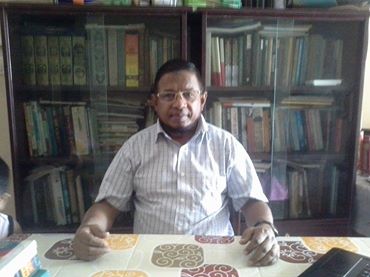
-
Eng Mohammed Siddique wrote a new post 8 years, 8 months ago
1961 ot
Bormár Redhuyu’ttu
Koumi Bácindar Forugram ot
Ruáingá Aiccíl
Bormár Redhuyur Abas ottú Bormár bácinda koumi ókkol ór hotá lói, forugram ókkol óre 1947 cón ottu cúru gorí, abas sári diya giíl. É […]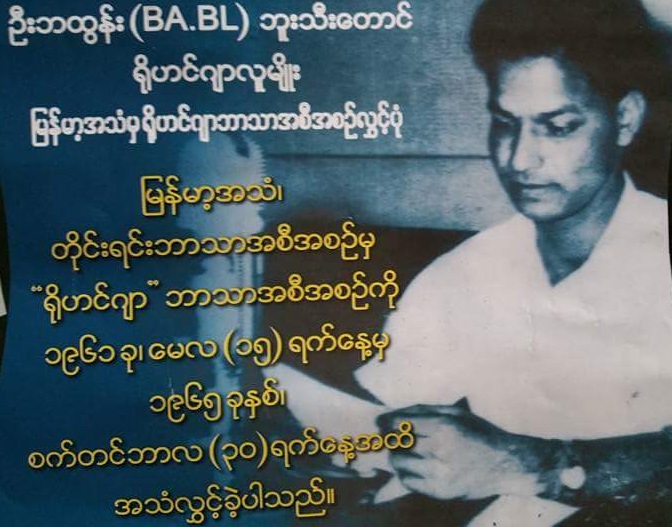
- Load More